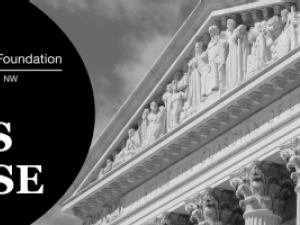The five-year plan, to be financed by fees charged to users of the fuel, was designed to spur purchases of long-haul trucks and commercial vehicles that can run on cheap and abundant U.S. natural gas. It would also help defray the costs of building pumps and other infrastructure for fueling.
The closely watched vote pitted billionaire T. Boone Pickens, who has been promoting natural gas vehicles since 2008, against Koch Industries, an energy conglomerate that saw the plan as interference in the private sector.
As gasoline prices spike to new highs for this time of year, President Barack Obama had promoted the concept as part of a long-term plan to reduce prices at the pump, a top issue ahead of November elections.
The amendment to the Senate's highway bill needed 60 votes to pass, but was rejected in a 51-47 vote after conservative groups panned it as an unnecessary subsidy, and after some senators worried the bill could raise costs for the chemical and agricultural sectors.
"I think we have to do a little work with those two industries," Senator Robert Menendez, a cosponsor of the bill, told Reuters after the vote.
"If we got them to the right point, I think we could actually pass this bill," he said, noting the vote would have passed if only a simple majority were required.
The 60-vote threshold was part of a deal to allow the vote to be attached to a the highway funding package.
The defeat was disappointing for companies that make natural gas engines, but is "not a death knell" for the industry, said Jonathan Burke, vice president of global market development at engine maker Westport Innovations.
The industry "can do its business in the absence of these incentives," Burke said.
Export Restrictions Key
Menendez said the "commonsense" plan to displace some fuel used in the trucking industry with natural gas would help pave the way for reduced dependence on foreign oil, and could help reduce gasoline prices.
Bountiful U.S. production has brought domestic natural gas prices to 10-year lows. Cheaper natural gas has fueled a resurgence in the U.S. chemical sector and also helped tamp down fertilizer prices for farmers.
Menendez said some senators told him after the vote that they worried about supporting a plan that could raise costs for those industries.
Using natural gas in transportation could lead to a 5 percent increase in demand for U.S. natural gas, Menendez estimated.
But some natural gas drillers are seeking to reduce production, while other companies have applied for permits to export their surplus to countries such as Japan and China, where prices are higher. Under both of those scenarios, natural gas prices could also rise, Menendez said.
Restricting exports from oil and gas drilled on federal lands or in federal waters could help reassure those sectors that their costs won't rise, and lead to support for the bill next time it comes for a vote, Menendez said.
"When we're looking at these challenges we have domestically, we've got to be thinking: if you're going to drill it in America, and it's on federal land and water, you should keep it in America," he said.
Conservatiive Group Pan Plan
Conservative groups including the Heritage Foundation, Club for Growth, Americans for Tax Reform and the Koch-funded Americans for Prosperity had put senators on notice that they would be tracking who voted for the bill.
The groups have said the natural gas program might not generate enough money to pay for the subsidies and argued the private sector should adopt the vehicles as it sees fit.
James Inhofe, a conservative senator who supports natural gas vehicles but voted against the plan, said he would soon introduce a new bill that would reduce environmental emissions regulations for the vehicles as an incentive for their use.
Tax Brea








